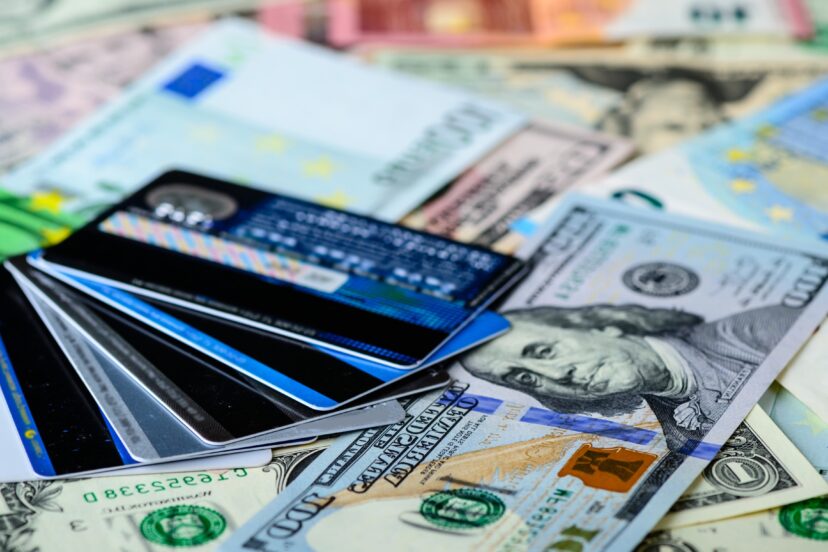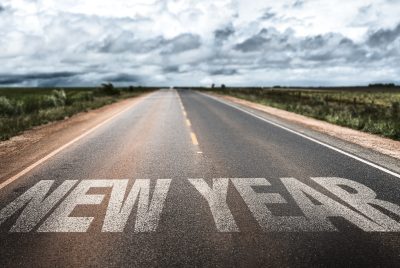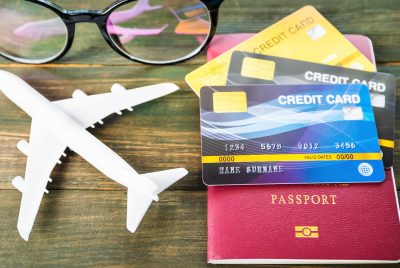Exchanging Currency Before Traveling or At Destination: Pros & Cons
One of the crucial aspects of travel planning is currency exchange. Should I exchange currency before my trip, or should I wait until I reach my destination? Let’s explore the pros and cons of each approach to help you make the right choice.
Anyone who’s visited a foreign country for the first time understands the importance of making informed decisions to ensure a hassle-free experience, especially for families with kids and seniors. Allocating a spending budget is an integral part of traveling. Traveling smartly and safely enhances the overall experience. Among the various considerations, while planning a trip, currency exchange plays a vital role. Making the right decisions about exchanging currency can save you time, money, and stress during your journey.
Pros of Exchanging Currency Before Traveling
Better Planning and Budgeting
Exchanging currency before your trip allows you to have a clear idea of your budget. By knowing the exact amount of foreign currency you have, you can plan your expenses more effectively. It helps in setting a realistic travel budget and ensures you don’t overspend or run out of cash during your adventure.
Avoiding Unfavorable Exchange Rates
Currency exchange rates can be volatile, and they fluctuate continuously. By exchanging currency before traveling, you can avoid unfavorable rates that might occur during your trip. It protects you from sudden spikes in exchange rates that could leave you with less spending power.
Peace of Mind and Convenience
Arriving in a foreign country with the local currency in hand provides a sense of security and peace of mind. You won’t have to worry about finding currency exchange booths immediately after landing, especially when you might be tired and disoriented from the journey. It offers the convenience of having money ready for immediate use.
Cons of Exchanging Currency Before Traveling
Possibility of Losing Money Due to Fluctuations
While exchanging currency in advance can be advantageous, it also carries the risk of losing money if the exchange rate improves after your exchange. You might end up with less value than you expected if the foreign currency depreciates before your trip.
Limited Options for Currencies
Not all local banks or exchange centers may offer a wide range of foreign currencies. Exchanging in your home country might limit your options, especially if you’re traveling to less common destinations.
Potential Extra Fees and Charges
Some banks or currency exchange providers may charge extra fees or offer less competitive rates. This can reduce the overall value of your exchanged currency, impacting your travel budget.
Pros of Exchanging Currency at My Destination
Access to Local Exchange Rates
Exchanging currency at your destination allows you to access the most current and accurate exchange rates. Local rates may sometimes be more favorable than those offered in your home country.
More Currency Options
In popular tourist destinations, you may find a variety of exchange centers offering a range of currencies. This flexibility allows you to choose the most advantageous currency for your specific needs.
Avoiding Carrying Large Amounts of Cash
By exchanging currency at your destination, you can avoid carrying large sums of cash during your travels. This reduces the risk of loss due to theft or misplacement.
Cons of Exchanging Currency at My Destination
Security Risks and Safety Concerns
Exchanging currency in a foreign country may expose you to security risks, especially in crowded places or unfamiliar neighborhoods. Carrying a significant amount of cash could make you a target for thieves.
Time Consuming and Inconvenient
Searching for reliable exchange centers in an unfamiliar place can be time-consuming and inconvenient, especially when you want to start exploring right away.
Language and Cultural Barriers
Language and cultural barriers might make the currency exchange process challenging, leading to misunderstandings or confusion.
Factors to Consider Before Deciding
Before making a decision, consider the following factors:
Destination Country and Exchange Rate Stability
Research the stability of the exchange rate in your destination country. If it’s relatively stable, exchanging before your trip might be a safer option. However, if it’s prone to fluctuation, exchanging at your destination could offer better rates.
Travel Duration and Itinerary
The duration of your trip and the number of destinations you plan to visit will influence your currency exchange decision. Longer trips might benefit from exchanging at the destination, while shorter ones may prefer exchanging in advance.
Personal Risk Tolerance and Comfort Level
Evaluate your personal risk tolerance and comfort level with carrying cash. If you prefer having cash on hand right from the start, exchanging it before traveling might be more suitable for you.
Smart Currency Exchange Tips for Traveling Families
For families with kids and seniors, smart currency exchange practices are even more crucial:
Splitting Cash and Payment Methods
Divide your travel budget into smaller portions, exchanging only what you need for the first few days. Use a mix of cash, debit cards, and credit cards for added flexibility.
Using Prepaid Travel Cards
Prepaid travel cards offer a secure and convenient way to carry money. Load them with the desired foreign currency, and use them like regular debit cards during your trip.
Informing Banks About Travel Plans
Notify your bank about your travel dates and destinations to avoid any issues with using your cards abroad.
Currency Exchange Regulations and Advisories
Always stay informed about currency exchange regulations and advisories. Government travel websites and trusted financial institutions provide valuable information and guidance. Check the official government travel websites of your home country, such as the Department of State (for U.S. citizens), the Foreign, Commonwealth & Development Office (for UK citizens), or similar agencies in your country.
Additional Tips for Traveling Smartly and Safely
Travel Insurance and Health Precautions
Prioritize getting comprehensive travel insurance that covers medical emergencies, trip cancellations, and lost belongings. Additionally, check vaccination and health requirements for your destination and take necessary precautions.
Get Familiar with the Currency and Learn Basic Phrases
Familiarize yourself with the currency, i.e., bills and coins, and with basic phrases in the local language, such as greetings and simple questions. This can go a long way in creating a positive impression with locals.
The decision to exchange currency before traveling or at your destination depends on various factors. Exchanging before traveling offers better planning and budgeting opportunities, avoiding unfavorable exchange rates, and providing peace of mind. On the other hand, exchanging currency at your destination grants access to local rates, and more currency options, and reduces the need to carry large amounts of cash.
When considering your choice, it’s essential to assess the stability of the exchange rate in your destination country, the duration of your trip, and your personal risk tolerance. For families with kids and seniors, smart currency exchange practices, such as splitting cash and using prepaid travel cards, can enhance safety and convenience during the journey.
FAQs
How can I check the current exchange rates before traveling?
Before traveling, you can check current exchange rates through various online platforms, currency converter websites, or financial news outlets. Keep in mind that rates may fluctuate frequently.
Is it safe to carry large sums of cash while traveling?
Carrying large sums of cash can be risky, as it may make you a target for theft or loss. It’s advisable to exchange or withdraw money in smaller amounts as needed and use secure payment methods like prepaid travel cards.
What should I do if I have leftover foreign currency after my trip?
After your trip, you can either keep the leftover foreign currency for future travels or exchange it back to your home currency at local exchange centers or banks. Some airports also offer currency exchange services.
Are there any limits on the amount of currency I can exchange before traveling?
The limits on the amount of currency you can exchange may vary depending on your home country’s regulations and the policies of the exchange provider. It’s best to inquire about any restrictions before proceeding with the exchange.
Should I exchange currency at the airport or find a local exchange bureau?
Exchanging currency at the airport might be convenient but can often come with higher fees and less favorable rates. If possible, consider finding a local exchange bureau in the city, where rates may be more competitive.
Traveling is an enriching experience that allows us to explore new cultures and create lasting memories. By making informed decisions about currency exchange, you can ensure a smooth and enjoyable journey for yourself and your loved ones. Remember to stay updated with currency regulations and advisories to stay prepared and safe during your travels.
Disclaimer: The information provided in this article is for general informational purposes only and does not constitute financial advice. Always consult with a professional financial advisor or banking institution for personalized guidance on currency exchange and travel finances.




